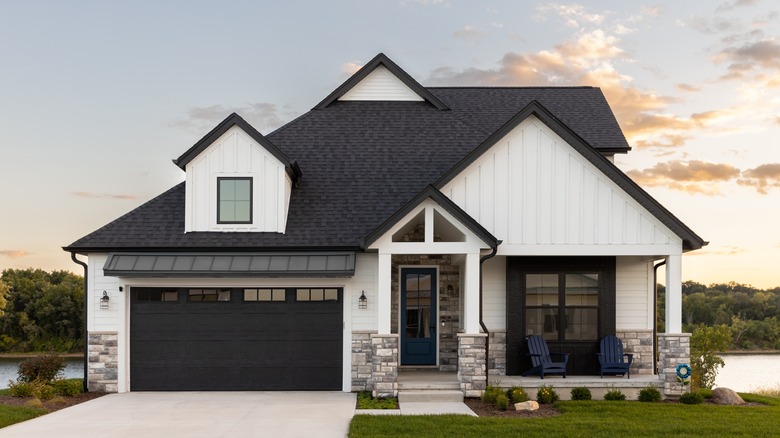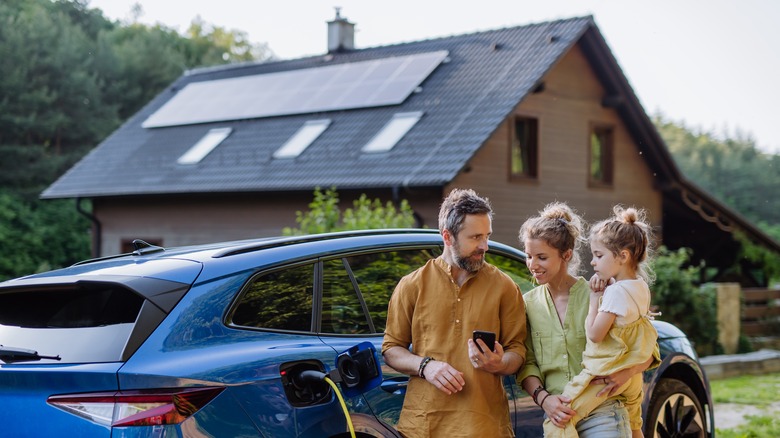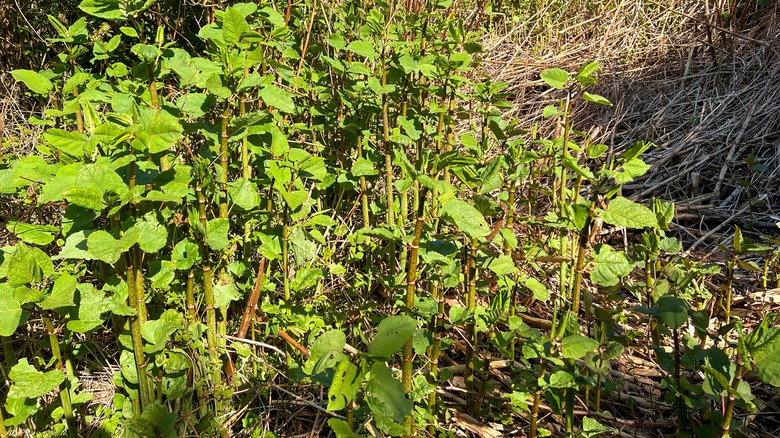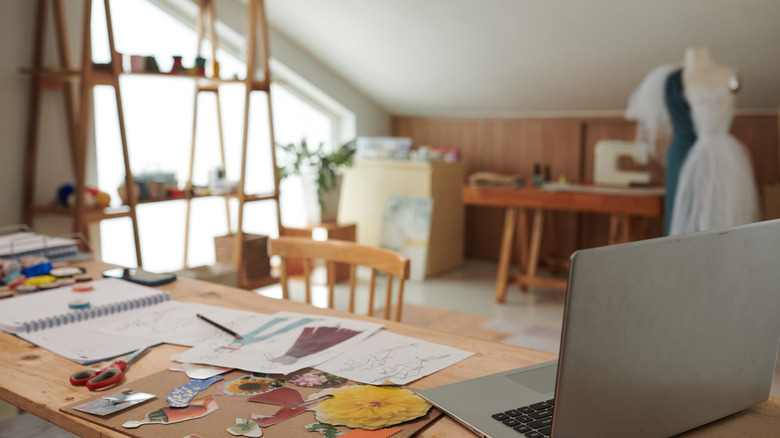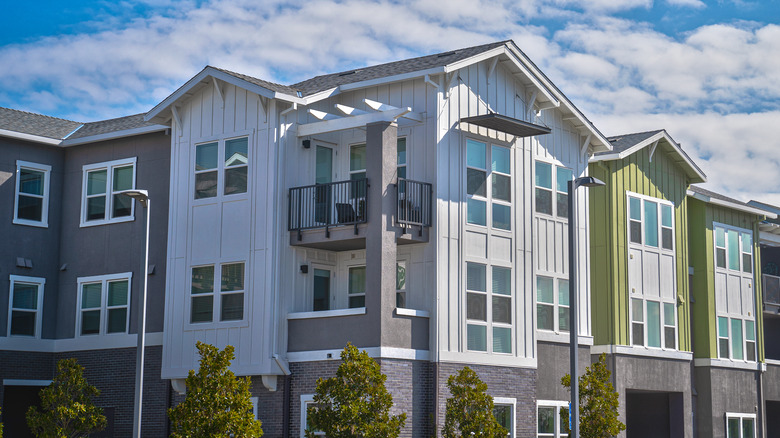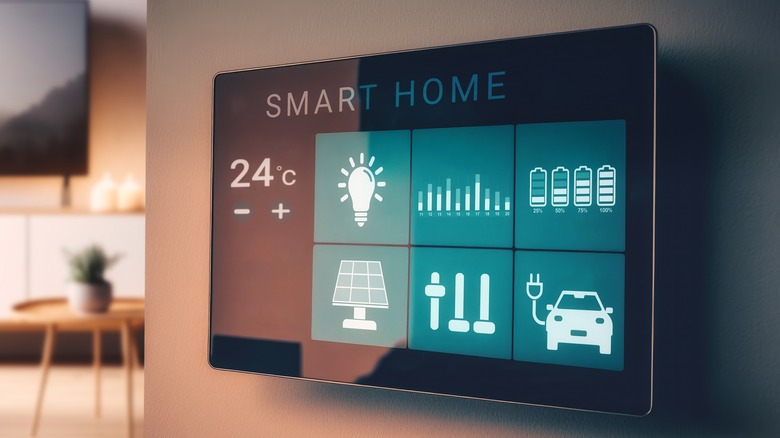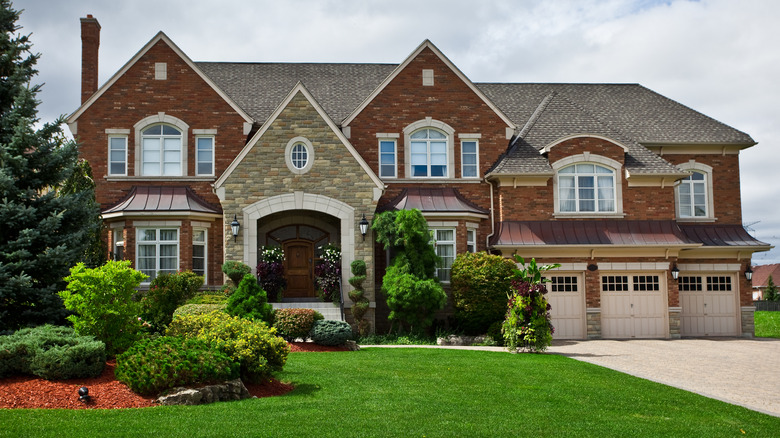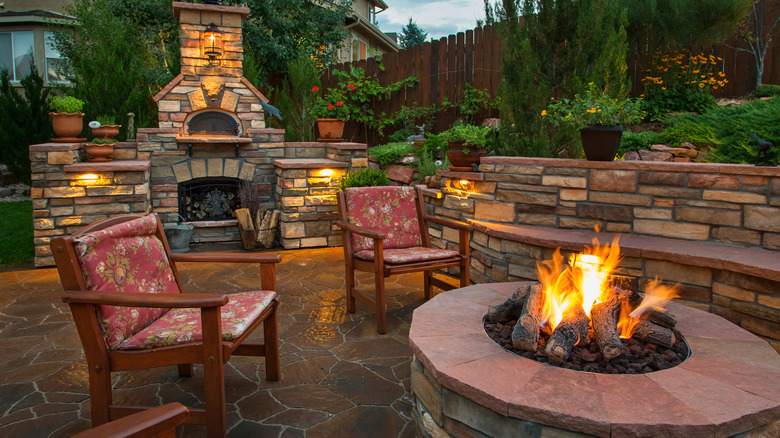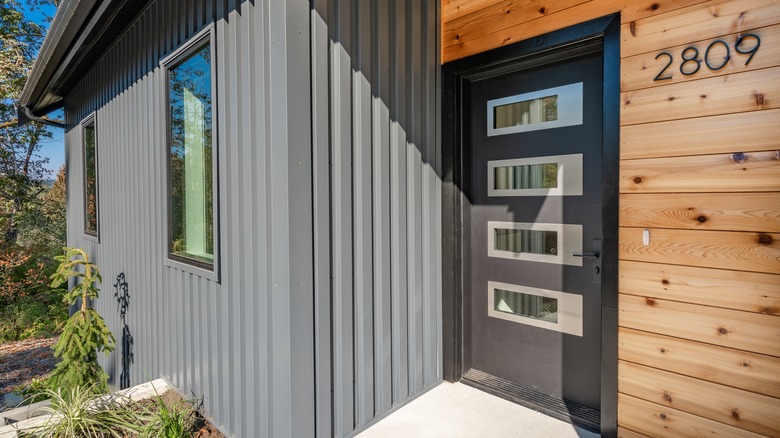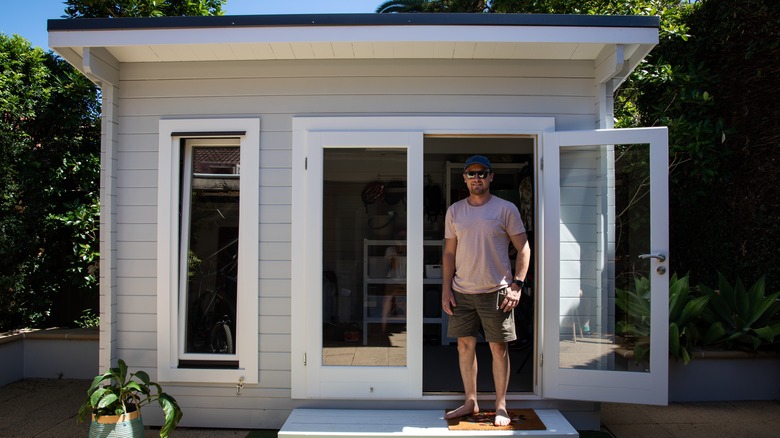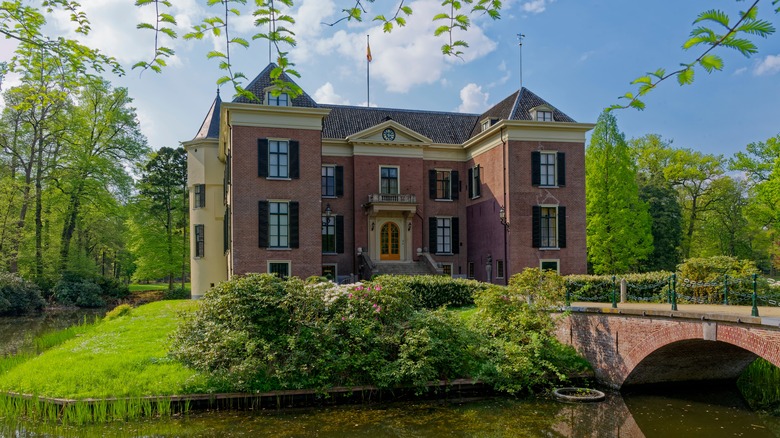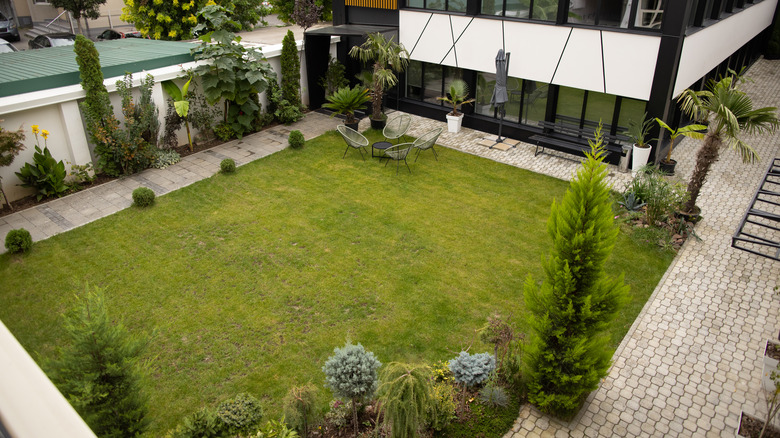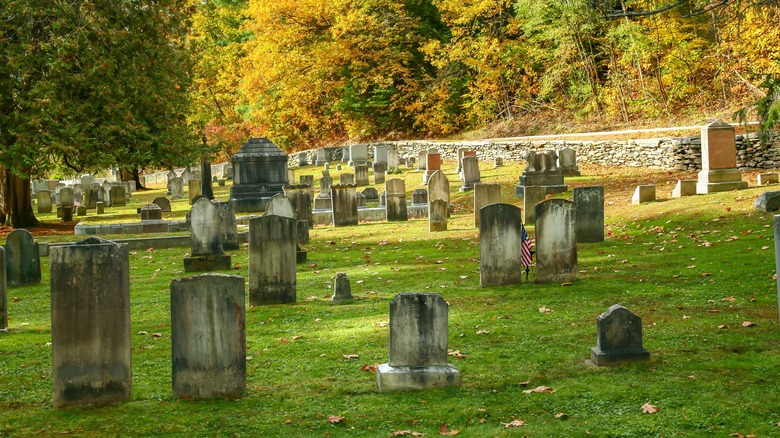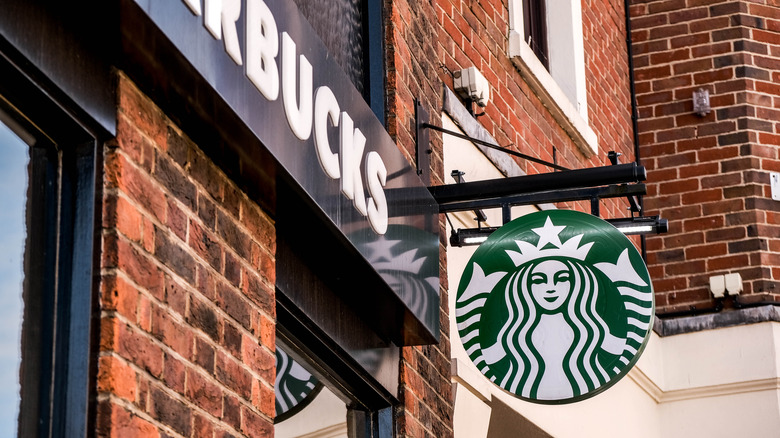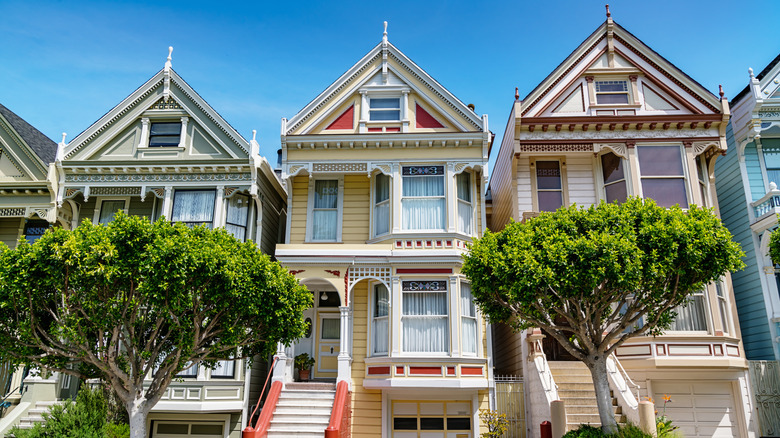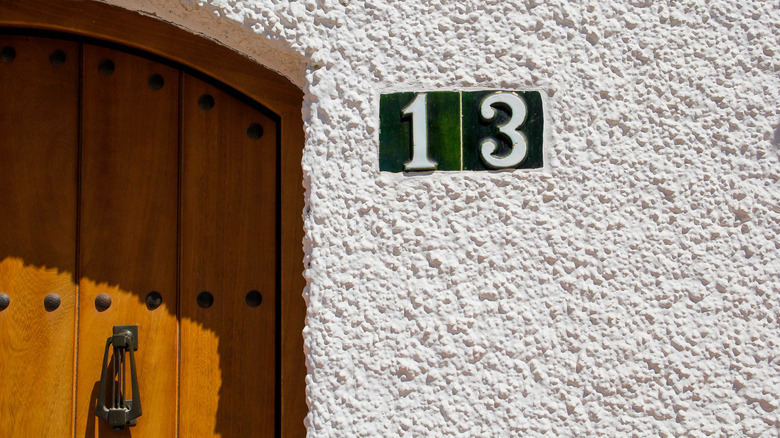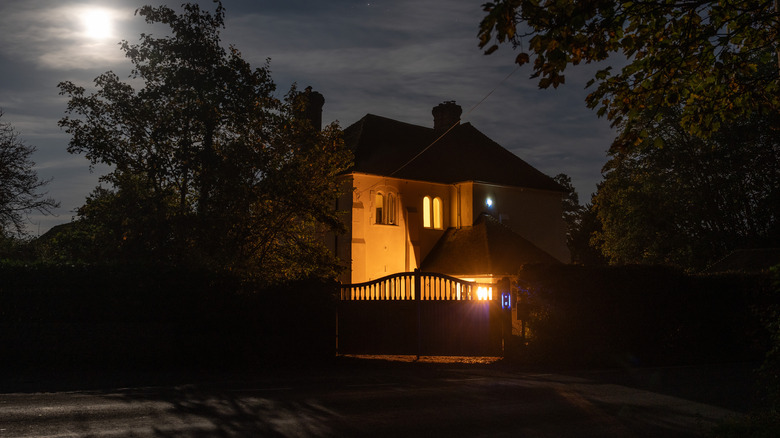Doing These Things Can Boost Your Home's Value (And What Can Tank It)
Whether you plan on selling tomorrow or just want a better property to enjoy today, adding value to your home is essential. But which efforts give you the highest ROI — and which can actually harm your bottom line at the end of the day? We spoke to experts at the top of their field in real estate, house flipping, home staging, landscaping, and eco-friendly properties to find out. In these House Digest exclusive interviews, our sources share the best ways to increase your home's value, plus the things you are currently doing that are tanking it. This will help you navigate which projects are worth tackling and which aren't worth your time.
Sometimes, adding value is as simple as installing a smart thermostat to make regulating the home's temperature that much easier. In other cases, you might need to transform the entire property into a smart house to make it eco-friendly enough. It's all about the best ROI for your specific house and in the current market. With the help of our experts, you'll be able to make the best choices for your property to increase its value without breaking your budget.
Solar panels add value, whether or not they are paid off
In the face of rising energy costs, eco-friendly homes are becoming more and more popular. One great way to add value to your home while upping its "green factor" is to install solar panels. "I noticed that homes with solar installations sell for higher prices than comparable non-solar homes," Jim Gray, licensed real estate professional at AgentAdvice, told House Digest in an exclusive interview. "The exact premium can vary based on your region and other factors, but the consensus is that solar boosts resale value by around 4% on average." Gray shared that on a $500,000 home, this percentage works out to be at least $20,000 in value. Yet there is still more to gain; Gray also pointed out that eco-friendly homes also tend to get noticed more by buyers. Because it's something people care about, they put in offers.
Paying for solar panels upfront can be tricky, as they can be expensive. If you don't pay cash, you can finance the installation by taking out a loan. You can sell your house with an active loan, but it might be challenging. "Taking over someone else's financing is an added layer of complexity that some buyers would rather avoid, even if it means inheriting energy savings," Gray warned. Instead, you will likely need to list your house for a bit less to compete with similar solar-panel houses in the area without loans.
Invasive Japanese knotweed will take over your lawn and tank value
Having a well-maintained outdoor space is essential to creating a high value home. But if there's one thing that can easily ruin things for you, it's a Japanese knotweed invasion. "[The plant] can decrease the home's livable outdoor spaces and ultimately decrease the value of such spaces," Derek Thomas, master gardener and owner of Thomas Landscapes, shared with House Digest in an exclusive interview. "Once a colony is established, it forms a dense mass of root and inhibits the growth of most if not all plants. It will spread quickly, and in an urban setting, can take over the yard in a short time."
Thomas warned that the fight against knotweed is a long and hard one. "If you want to remove it, be ready for battle as it will take time and persistence," he said. You can do it yourself or hire a gardener to help if things really get out of hand, but the main weapon that you will need is time. The eradication process can take two to three years from start to finish — and is rarely less. "It is important to get rid of it by incineration (best method)," Thomas advised. "If this is not possible, you must remove the plants and roots and cut them into small ½" or smaller pieces. You can also use a non-selective herbicide. However, you will have to treat multiple times for it to be 100% effective."
Having a dedicated hobby room is too narrow-minded for most
When staging your house for sale, you need to erase as much of yourself as you can from it. The goal is to help potential buyers imagine their lives, belongings, and families filling the rooms. Because of this, you should be as general as possible in how a specific room can be used. Most people don't have a great imagination and won't be able to see past what's in front of them. "A hobby room, especially one tailored to a specific interest, could be a distraction," Adrian Pedraza, licensed real estate broker and owner of The California Home Buyer, told House Digest during an exclusive interview. "Neutralize the space by removing personal items and specialized equipment. Aim to create a room that is versatile and can easily be imagined as a home office, bedroom, or general-purpose room."
So when it's time to sell, you can add more value to your home by packing your hobby room away. Whether it's crafting, woodworking, or even a full-scale tabletop game room, get a jump start on your moving process and take your items to storage. Instead, Pedraza shared that the best use for this kind of room is to set it up as a guest bedroom or home office. You can call it a "flex room" on the listing so people can use their imaginations to fill in the blanks. However, staging it as a guest bedroom is a safe choice for those who are looking for something move-in ready.
Pet odors can decrease value if not handled properly
Most people love sharing their home with a pet, but the smell of having an animal in the house can significantly impact its resale value if not managed properly. "Having pets can really affect how much your home is worth when you go to sell it," warned Adrian Pedraza. "Pet pee can soak into carpets, floorboards, and even walls." These accidents can make your house stink. You might go nose blind to it, but your buyers certainly won't. In fact, Pedraza revealed that sometimes people offer less money on a property because of pet damage, as they see it as a massive chore to get rid of once they're the owners.
Unfortunately, they are correct, but you aren't entirely out of luck. You can turn things around by taking a few extreme cleaning measures. "Use a special black light to find all the pee spots, even old ones," he said. "Rip up any smelly carpets or flooring and throw it away, and scrub the floors and walls with antibacterial cleaner and repaint. Look for enzyme cleaner made for pet smells as it breaks down the yucky bacteria that cause odors." If the smell is still overpowering after your best efforts, Pedraza recommends hiring professionals to come in and finish the job.
Limited parking can turn buyers off
Sometimes there is nothing you can do about the bad parking situation at your home. This is especially true if you are selling an apartment without an assigned parking spot or a house on a busy street with no driveway. Yet there are a few other amenities you can add if there isn't space, to make up for the lack of it. "Make the home as convenient as possible in other ways," Ryan Nelson, licensed real estate agent, founder and CEO of Rental Real Estate, told House Digest exclusively. "Ensure easy access to public transportation, provide secure bike storage, and emphasize the walkability to local amenities such as grocery stores, restaurants, and parks." Nelson also shared that homeowners should go out of their way to ensure their listing is safe for pedestrians, including adding plenty of lighting for after-dark strolls, plus an updated security system, just in case.
However, if there happens to be room for dedicated parking, but none currently exists, Nelson recommends a different approach to fixing the issue. "Installing a parking pad, strip, or small parking lot gives homeowners a dedicated space, making the property more appealing," he said. "Partnering with nearby properties for shared parking is also an option." When adding more parking to increase resale value, ensure you create enough room for at least two vehicles. Most families have at least two cars, so this will help you capture a wider net of buyers.
Making the home more energy-efficient can impress buyers
Most buyers care about green homes; however, for the best ROI, you have to be intentional in the features you choose to make your home eco-friendly. "As with any potential renovation, look at upfront costs, utility savings projections, available incentives and rebates, plus, of course, your target buyer demographic and market conditions," advised Jim Gray. "If your buyer pool skews younger and more eco-conscious, efficiency upgrades could give you a crucial competitive edge." The first thing to look at is insulation. "By paying a professional to thoroughly caulk windows, doors, and exterior cracks — and beef up insulation in walls and attics — you could reduce your heating and cooling costs by 15-20% or more each year," he said. While these improvements might not be as fun as installing new, trendy windows, they will really impress buyers who are looking for an efficient, cost-saving home.
If this major update sounds like too much time or money, Gray also shared that you can still make a big difference with smaller improvements around the house. "Beyond major clean energy and efficiency projects, smaller eco-friendly touches can further amp up your home's appeal for today's green-minded buyers." He recommends smart thermostats, which don't make too much money back but can make the house seem more impressive overall, alongside energy-efficient lighting and appliances, which can also lower power bills while you still own the home. By bundling a few of these "green" upgrades together, you will create a real wow-factor for eco-conscious buyers.
Working to make the landscape attractive is a smart move
While it can be difficult to put an exact number on the ROI of lawn care, good landscaping is still an essential part of adding value to your home. "Although appraisers don't necessarily add much (if any) value to a home based on the landscaping, it certainly can have an immediate and emotional effect on buyers, especially when they first visit the home," Karen Broussard, a realtor at NoVa Home Sellers at Keller Williams Dulles, told House Digest exclusively. "Most importantly, buyers won't want to add yard work to their list of to-do's when they move into a new home. So a messy yard will be a big turnoff." Neglecting your yard can potentially deter eager buyers, so it's important to keep it well-maintained.
Some of the easiest ways to increase your home's curb appeal include adding a potted plant or two to your front porch. This pop of greenery can make your home seem more cheerful and welcoming. You can also consider window boxes as an alternative place to show off fresh flowers. Aside from this, keep your grass healthy. Mow and edge your lawn, and sprinkle grass seeds to fill in any bald spots before you list your home. Make sure there aren't any dead branches hanging off your trees and your flowerbeds are freshly mulched for any showings. When you add these small things together, they make a big difference in adding value for buyers.
Adding a fire pit is a welcome touch
Sometimes it's the smallest, seemingly random additions to your home that can add the most value. For example, a fire pit might seem like a fun, inconsequential addition, but it can help make your home stand out in buyers' eyes. "When I was first getting started in real estate, I'll admit that I didn't really appreciate how much impact small touches could have," Ryan Nelson shared. "But over the years, I've learned that things like a cozy fire pit can go a long way in making buyers feel at home in a property. Who doesn't love hanging out by the fire on a summer night, right? It's such an easy win. And believe me — your buyers will appreciate it!" It creates a new way to gather in the home, which increases your property's value.
The reasoning behind the success of a fire pit is simple. "Anytime you can give potential buyers a unique experience, it makes your home more desirable," Nelson said. However, to keep buyers both interested and safe, there are a few precautions homeowners should take. "[Stick to] gas fire pits versus wood-burning. Less worry about embers and more time enjoying the ambiance," said Nelson. "Regular cleaning and common-sense placement are also a must." You can add even more value for yourself and future buyers alike by creating ambiance around the fire pit, as well. Consider an outdoor entertainment area with lights, decking, stonework, and seating options, too.
Painting your front door black can intrigue buyers
Front door color is very important when thinking about the value of your property. In fact, the shade you choose can leave you with serious cash left on the table, or in your pocket. [Zillow] found houses with black front doors sold for over $6,000 more on average compared to similar houses with other colored doors," Crystal Olenbush, real estate expert at AustinRealEstate.com, told House Digest exclusively. That's because black is one of those classic colors that never become dated. "Black is a timeless color that makes a house look nicer from the outside. It also draws someone's attention to the house as they walk or drive by, making them more likely to want to learn more about it."
Black's popularity also stems from its harmony with so many different home designs and colors, Olenbush shared, making it kind of a one-size-fits-all solution for curb appeal and home value. However, she warned that other colors have the opposite impact. "Gray, red, or olive green have been found to scare people away instead and lower a home's price." So if your door is one of these hues, it might be time to repaint it.
Granny houses encourage multi-generational living
As mortgage interest rates and rent prices soar, many families are considering multi-generational living. While in-house mother-in-law suites have long been the rage for hosting aging relatives, modern builds now offer entire dwellings — albeit on a smaller scale for the same purpose. Yet, if you don't have aging relatives, granny houses also give young adult family members a more private place to live while saving for a property of their own.
"Guest houses or granny flats add value by providing additional living space, offering rental income potential, and accommodating extended family or guests," Dutch Mendenhall, co-founder of RADD Companies, told House Digest in an exclusive interview. Sometimes called granny flats, these cottages are typically in the backyard and have their own electricity and plumbing, making them fully independent from the main house. They are smaller than a typical guesthouse, making them more accessible to build. "Typical ROI ranges from 5-35%, depending on the home type, location, and market conditions," Mendenhall said. While the investment can be made back in these percentages during a sale, the potential for rental income can make the numbers significantly larger leading up to it.
Adding a name to your property can make things seem chicer
If you have a bit of land or live in a unique location, something quick and easy you can do to add value to your home is to give it a name. "Branding a property is a trend we are currently seeing among the elite, but like all trends, it will eventually become more widespread," Beth Romer, owner and founder of L&L Collective, exclusively told House Digest. However, not every house can pull this off. A small bungalow in the city likely won't see an increase in value; instead, it will just look quirky. But an estate, historic home, or generational property might because it will add gravitas to the listing.
Yet, coming up with the perfect name can be a lot harder than it seems. Luckily, Romer has a few tips. "The key is to identify what makes your home special. Whether it's the unique history, the setting, or its architectural style, finding and highlighting that special quality through a name can significantly enhance its appeal," she said. In essence, Romer shares that naming your home creates a brand for the property. Whether it's Hasting's Corner or Appaloosa Estate, you're making the listing more memorable. "By branding a property, you are crafting a story that can resonate with potential buyers. This story can make the property more memorable and desirable, ultimately helping to sell it."
Soundproofing your home makes it more peaceful, thus more valuable
Turning your home into an oasis can make it a more desirable place to live, thus adding monetary value to the property. An easy way to do this is by adding soundproofing. The less of the outside world that seeps in, the better. "Invest in soundproofing solutions like planting trees for natural sound barriers and installing soundproof windows and insulation," Dutch Mendenhall advised House Digest readers. However, this advice does come with a warning. "Do not go overboard, or you will lose the competitive edge and minimize your ROI." Instead, you need to be strategic about what you add to make sure you don't blow out your budget just for the sake of it.
"ROI typically ranges from 5-35%, depending on the extent of improvements and market factor. To maximize profitability, focus on sustainable investments," said Mendenhall. This means investing more in "natural" sound barriers, like privacy hedges and trees. Some of the best low maintenance trees include crape myrtle, amur maple trees, Eastern redbuds, and Spring snow crabapples.
Nearby cemeteries can add a spooky vibe — which may be a plus
If you have a property near a cemetery, you might worry about the potential resale value due to the spooky factor. Who wants to look out their bedroom window to a sea of gravestones at 3 a.m.? Well, the answer might surprise you — because a lot of people do. After all, you bought the house, too! "Properties near cemeteries can be more challenging to sell, but this largely depends on the buyer's perspective," Ryan Fitzgerald, realtor and owner of Raleigh Realty, told House Digest, exclusively. "Some potential buyers might find the proximity to a cemetery unsettling, which can narrow the pool of interested parties. However, others may appreciate the quiet and well-maintained green spaces that often accompany cemeteries."
For the nonsuperstitious, living next to a cemetery is much like living next to a large public park. "Some buyers appreciate the serene environment and the lack of immediate development nearby, which can mitigate any negative impact on the price," he said. For someone moving from a busy area, this is an aspect of the listing to really play up. There is a zero percent chance of rude or noisy neighbors. Fitzgerald shared that some buyers might try to offer less because of superstitious worry (perceived or real!), but you don't have to bite. Just always be proactive about mentioning the feature in listings, as you don't want buyers to be surprised by it at showings.
Living near a Starbucks is great for more than just a coffee
Many buyers don't just consider the house before making an offer — they also look at the neighborhood surrounding the home. For these buyers, they are purchasing a lifestyle, not just a property. For this reason, having amenities nearby is a real plus. "Yes, having a Starbucks nearby can increase the value of your property. This is often referred to as the 'Starbucks Effect', and homes near a Starbucks have been shown to appreciate in value more quickly than homes that are not," Joel Medrano, CEO & President of PPS House Buyers of Houston, told House Digest exclusively. It adds an extra perk to the house.
The presence of a Starbucks (or two or three!) typically represents a well-developed area that offers lots of conveniences. Yet, it's not the only chain that can have a positive impact on your home's value. "Other businesses that can significantly impact property value include high-end grocery stores like Whole Foods or Trader Joe's, popular fitness centers, and well-rated restaurants," Medrano advised. To play this up, you can mention the mileage and travel time to these amenities in your listing. If you don't have any nearby or live somewhere more regional, mentioning that can also have a positive impact because some buyers could be more interested in solitude!
Buying a celebrity home can add value — and visitors
Having a home that is famous or had someone famous living in it can add value because of the exclusivity factor. You see this all the time in hotel marketing — properties love to boast about their A-list guests. If a property was designed by a renowned architect, inhabited by a celebrity, or featured in media, its reputation can significantly enhance its investment potential. "[These homes] often carry a certain prestige that can increase their market value," Ryan Fitzgerald exclusively shared with House Digest. "Buyers are drawn to owning a property with such a notable history."
You might have buyers who are big fans of the property itself — like the "Full House" home in San Francisco — or want to live where a famous person once stayed. While the notoriety of a property might deter some buyers due to the potential for fans to visit, the pool of those interested is still substantial. A final important thing to note is that if your home is a celebrity home, sometimes it will sell for a great price just because of its features. "Oftentimes, celebrity homes are simply high in value because they are nicer and have upgrades included in them, so the value might not be tied to any name at all," Joel Medrano explained. Celebrities typically have larger budgets, so it's likely they invested in premium upgrades when renovating.
Your street name and house number are important details
Some hotels don't include a 13th floor due to guest superstitions. In that same vein, living in a house number with "13" in it might also put off buyers and cause them to overlook your listing. "The street address can impact the value of a house, especially in cultures that hold a definitive meaning when it comes to certain numbers," Joel Medrano shared. "In Chinese culture, for example, the number 8 is considered very lucky because it sounds like the word for fortune, but the number 4 is seen as unlucky because it sounds like the word for death." If that's the case in your home, try to downplay the number by investing in smaller number plates and emphasizing other positive aspects of your property in your listing.
The same can be said for the name of your street. "Names with positive connotations or historical significance for example can be more appealing to specific buyers," Medrano explained. "Think about street names that you might see in your own city, such as 'Sunlight Way' or 'Blood Street.' Which sounds more appealing to live in?" He also pointed out that buyers like street names that are simple in spelling and can be read easily on the first try. In his native Houston, it's the difference between Kuykendall and Smith. Although you cannot change these aspects of your home, it is something to be aware of.
How to sell a haunted house: It's possible
It's the start of every horror movie: An unsuspecting family moves into a haunted house where murder and mayhem await them. Understandably, buyers want to avoid this. If your property has any stigma attached to it, like a local legend or real life crime, the key is to get out ahead of the rumors before buyers hear it through the grapevine. "In general, the value of a home is definitely affected if it is believed to be haunted, but realtors can get creative to sell the home," Joel Medrano said. "Realtors must be careful though, as certain signs can spook potential buyers, such as stories of strange occurrences, a history of tragic incidents happening in the home, or an unusual number of property turnovers." It's a delicate balance.
Quick turnover means that previous owners didn't enjoy living in the home, which can play on people's superstitions. As can people consistently getting hurt or sick, although the latter might be worth investigating whether there is something toxic in the house like mold or asbestos. If that has been remedied, a good realtor can easily explain away the problems. If the home was the scene of a violent crime, however, be sure to follow all legal disclosure requirements, which differ by state. "It is also an ethical responsibility that realtors have to disclose such events, even though they can significantly lower a home's selling price," Medrano shared.

